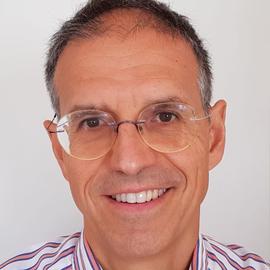
Fabio Massacci
Full Professor
One’s life in one line
- Fabio Massacci (MEng’92, PhD’98 Computer Engineering, MA’95 in International Relations), married with two children, has been in Rome, Cambridge, Toulouse, Trento, and Amsterdam. He held visiting positions in Durham, Koblenz, Lueven, Marina del Rey, and Oslo.
Three standard deviations in three lines
- He is one of the few professors who has presented in top hackers’ venues (BlackHat USA, Asia), top computer security conferences (ACM CCS, IEEE S&P), top empirical software engineering journals (ESEJ, IEEE TSE) and top risk analysis journals (Risk Analysis). For his work on security and trust in socio-technical systems he has received the Ten years Most Influential Paper Award by the IEEE Requirements Engineering. He has coordinated several European > projects (including a multidisciplinary projects with economist, sociologists abd computer scientists on socio-economic aspects of security SECONOMICS). He is the coordinator on the H2020 AssureMOSS project on open source security risk assessment and certification (“Written everywhere, Secured in Europe”).
- While almost all professors are sellers of technologies (through their papers or their spin-offs) he was for 7 years deputy rectors for ICT procurements and services supervising a 70+ workforce and several millions Euro in outsourcing contracts. This made him a buyer of computing technology and a user of risk analysis. His perspective of what is a useful security technology or a useful risk analysis is shaped by this experience and very diverse: prestigious corporations are not longer (only) the place to send your > students or funders of your research, they are sloppy suppliers selling overpriced products.
- He actively participated to civil society. He worked as a volunteer with underprivilege people and in refugee camps. He held, among others, the post of European Executive member and Treasurer of Service Civil International an international NGO with consultative status at UNESCO and the European Youth forum. For his MA he wrote a dissertation on the cooperation between democracies and social islamic movements (instead of funding Saudi princes). He qualified at the world-wide competition to become an U.N. Officer but eventually opted to be an Assistant Professor (ok, nobody is perfect)